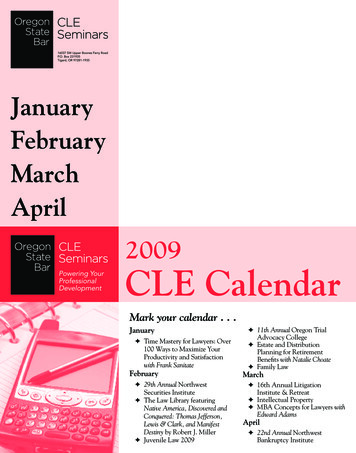
Transcription
COLLEGE CALENDAR2021 - 2022Fall Term2021September 7 – RegistrationSeptember 8 – Term BeginsSeptember 14 – Last Date for Schedule ChangesOctober 11 – Holiday, No ClassesOctober 14 – Session I EndsOctober 18 – Session II BeginsOctober 28 – Last Date to Drop a Course without PenaltyNovember 19 – Term endsWinter Term2021November 30– RegistrationDecember 1 – Term BeginsDecember 7 – Last Date for Schedule ChangesDecember 22 – Break Begins after ClassesDecember 23 & 24 – College ClosedDecember 30 & 31 – College ClosedJanuary 3 – Classes ResumeJanuary 14 – Session I EndsJanuary 17 – Holiday, No ClassesJanuary 19 – Session II BeginsJanuary 27 – Last Date to Drop a Course without PenaltyFebruary 21 – Holiday, No ClassesFebruary 23 – Term EndsSpring Term2022March 8 – RegistrationMarch 9 – Term BeginsMarch 15 – Last Date for Schedule ChangeApril 13 – Session I EndsApril 14 – Break Begins after ClassesApril 15 – Holiday, College ClosedApril 25 – Classes ResumeApril 25 – Session II BeginsMay 4 – Last Date to Drop a Course without PenaltyMay 27 – Term EndsJune 4 – CommencementSummer Term2022June 7 – RegistrationJune 8 – Term BeginsJune 14 – Last Date for Schedule ChangesJuly 4 – Holiday, College ClosedJuly 14 – Session I EndsJuly 15 – Session II BeginsJuly 26 – Last Date to Drop a Course without PenaltyAugust 18 – Term EndsCalendar is subject to change.1
2
WELCOMEOn behalf of the faculty and staff at JBC, I would like to welcome you to the college.The information contained in this handbook is designed to make your student life here acomfortable one. It is extremely important that you read it carefully. We hope it will answermany questions you will have throughout the college year. Keep it for reference.If you have any difficulties with which we can help, I hope you will not hesitate to contact one ofthe staff.David ConklinPresidentJamestown Business College does not discriminate on the basis of race, color, ethnicity,national origin, religion, creed, age, disability, sex, gender, gender identity, gender expression,predisposing gender characteristics, sexual orientation, marital status, pregnancy, domesticviolence victim status, military or veteran status, or criminal conviction in its educationalprograms, activities, or employment.3
ADMINISTRATIONDavid ConklinPresidentSUNY College at Buffalo, B.S.SUNY College at Fredonia, M.S.Angela GiuffreCommunicationsWhitney LindbladFinancial Aid CounselorJamestown Business College, A.A.S.Pamela ReeseVice President/DeanWilliam Howard Taft University, Ed. D.Western Governors University, M.Ed.SUNY Fredonia, B.S. Ed.Jordan NicholsonAdmissions AssociateCollege of Brockport, B.S.Victoria BaranDirector, Financial AidJamestown Business College, A.A.S.Diane RogowskiDefault Management CoordinatorWestern Governors University, M.S.Jamestown Business College, A.A.S., B.B.A.Randall BjorkDirector, MaintenanceMarty SeilerMaintenanceChristina ConklinDirector, AdmissionsJamestown Business College, A.A.S., B.B.A.Erica SheesleyRegistrar/Compliance OfficerJamestown Business College, A.A.S.Brenda S. SalemmeDirector, Career Development/RetentionJamestown Community College, A.S.Jared StricklandNetwork AdministratorJamestown Business College, A.A.S., B.B.A.Barbara ScoltonBursar/Executive Assistant to the PresidentJamestown Business College, A.O.S.4
FACULTYNOTE: Faculty listed below may teach courses in additional program areas.Mary Jo AndaloraBusiness AdministrationSUNY College at Fredonia, B.S.Canisius College, M.S. EdMax MartinBusiness AdministrationTampa College, B.S.Florida Metropolitan University, M.B.A.Sara CongdonBusiness AdministrationHilbert College, B.S.SUNY College at Buffalo, M.S.St. Bonaventure University, M.B.A.Todd MelquistBusiness AdministrationSUNY at Fredonia, B.S.Edinboro University, M.Ed.Deborah MillerBusiness AdministrationJamestown Business College, A.A.S.Houghton College, B.S.Baker College, M.B.A.Christina ConklinBusiness AdministrationJamestown Business College, A.A.S., B.B.A.David ConklinManagementSUNY College at Buffalo, B.S.SUNY College at Fredonia, M.S.Emily MorseBusiness AdministrationJamestown Business College, A.A.S., B.B.A.Western Governors University, B.S.Jessica CrouseBusiness AdministrationJamestown Business College, A.A.S.St. Bonaventure, B.A.Vermont Law School, M.F.A.L.P.Gary PetersBusiness AdministrationRochester Institute of Technology, B.F.A.Jennifer PetersBusiness AdministrationSUNY College at Fredonia, B.A.St. Bonaventure, M.B.A.Patricia DavisonComputer ScienceSUC Buffalo, B.S.SUNY Buffalo, M.B.A.Pamela ReeseGeneral EducationWilliam Howard Taft University, Ed. D.Western Governors University, M.Ed.SUNY Fredonia, B.S.Ed.Anne GreenJames Prendergast LibrarySUNY Fredonia, B.S.W.University of Buffalo, M.S.W.Texas Woman’s University, M.L.S.Jeffrey GustafsonAccountingSUNY College at Fredonia, B.S.Diane RogowskiMedical/Business AdministrationWestern Governors University, M.S.Jamestown Business College, A.A.S., B.B.A.Kate Hinds MorrisonGeneral EducationSUNY Fredonia, B.S.Jared StricklandComputer ScienceJamestown Business College, A.A.S., B.B.A.Deborah JohnsonAccountingJamestown Community College, A.A. S.Empire State College, B.S.5
ACADEMIC INFORMATION & GRADUATION REQUIREMENTSAssociate Degree ProgramAn Associate in Applied Science Degree is conferred upon those students with the followingqualifications:1. Successful completion of all program requirements including the total hours required forthe program.2. A cumulative Grade Point Average of not less than 2.0.3. Satisfaction of all Career Development activities.4. Satisfaction of financial obligations to the college.5. Degree students must be in resident status while completing the last half of the 96 quarterhours applicable to their program; except that a maximum of 12 quarter credits of nonresidence credit may be taken as part of the final 45 quarter credits if approved inadvance, and in writing, by the Dean. In no case will a student be awarded a degree withless than 48-quarter credits earned in residence.Bachelor in Business AdministrationA Bachelor in Business Administration Degree is conferred upon those students with thefollowing qualifications:1. Successful completion of all program requirements including the total hours required forthe program.2. A cumulative Grade Point Average of not less than 2.0.3. Satisfaction of all Career Development activities.4. Satisfaction of financial obligations to the college.5. Degree students must be in resident status while completing the 84 quarter-credit hoursapplicable to the program; except that a maximum of 12 quarter credits of non-residencecredit may be taken if approved, in advance and in writing, by the Dean.Additional graduation requirements are obtaining a passing grade for all subjects required intheir program and the completion of the Career Development requirements, includingSuccessful U., EDGE and LEAD activities.A grade point average (GPA) is determined as follows:Grade points are assigned to grades.ABCDF 43210Grade points received for a course are multiplied by the number of quarter credit hours for thecourse. The result is the grade points earned for the course. To obtain the grade point averagefor a term’s work, divide all grade points earned by the total number of quarter credit hourstaken that term. When a course is repeated to raise a grade, the student’s first grade is notincluded in computing a cumulative grade point average.EXAMPLE:ENG 151ACC101IT131GradeCreditsGrade PointsBAC6x6x6x1854/18 3.00 Grade Point Average342Total Grade Points 18241254Students may only repeat a course one time for which they have received an “F.” Students mayrepeat a course in which they have received a grade of other than “F” only if the repeated6
course is taken in addition to the regular full-time course load of 12 quarter credit hours. Whena course is repeated, the most recent grade becomes the grade of record and is used incalculating the grade point average. The first grade remains on the transcript but is not used incalculating the grade point average.A grade of “Incomplete” will be assigned if a student is unable to complete the courserequirements because of extenuating circumstances. Documentation of circumstances must beprovided to the Dean’s office. An “Incomplete” must be resolved within three weeks after theend of a term unless an extension has been approved by the Dean. Failure to do so results inan automatic grade of “F.” In certain cases, an “Incomplete” may need to be resolved prior tothe start of subsequent courses.GRADESStudents who have unsatisfactory grades (Ds or Fs) during the term will meet with theirinstructors to discuss the reasons for the unsatisfactory performance and the changes that needto take place to improve the grades. These meetings are provided as a counseling service tothe student and are very important to satisfactory academic progress. Students experiencingacademic difficulties may also receive or seek counseling from the Dean following theirmeetings with their instructors. Students who are unsure of what their grades might be at anytime during a term are encouraged to contact their instructor.Final grades are mailed to the student’s home at the end of the term. Grades may be withheldfor any student having a balance due at the college’s Business Office.Students may appeal their final grade with an instructor to ensure accuracy. This constitutes a“sit down” meeting with the instructor reviewing and explaining each evaluation. If students arenot satisfied, they can meet with the Dean to have the evaluations reviewed by the Dean alongwith another instructor or instructors for accuracy.STANDARDS OF SATISFACTORY ACADEMIC PROGRESSAssociate DegreeTo be in goodacademicstanding atthe beginningof this quarterA studentmust haveaccrued atleast thismany creditsWith at leastthiscumulativegrade 002.002.007
Bachelor DegreeTo be in goodacademicstanding atFirstSecondthe beginningof this quarterA studentmust haveaccrued at96102least thismany creditsWith at leastthis program2.50*2.00grade pointaverage*Required for admission to the upper 42.002.002.002.002.00Students must maintain good academic standing by meeting the college’s Standards ofSatisfactory Progress. Students not in good standing will be suspended or dismissed from thecollege. Students mathematically unable to recover their good academic standing aredismissed from the college and are not eligible to return. Students mathematically able torecover their good academic standing are suspended from the college and eligible to return.The available options for suspended students to return to the college are described below.Additionally, students not in good standing at the end of a quarter are not eligible for financialaid the following quarter unless they have obtained a waiver as explained below. It is expectedthat each quarter students will successfully complete a certain portion of the required coursework in their programs and maintain a required minimum grade point average as explained inthe schedule of good academic standing that follows. Note that any grade of “I” must beresolved before the start of any subsequent quarter or be considered as a grade of “F” for thedetermination of good academic standing.If a student withdraws on or before the “Last Date to Change Schedule” date, thus incurring notuition liability, the enrollment for the term is not used in determining a student’s academicstanding.To be eligible for continued participation in the New York State Tuition Assistance Program, astudent must have a cumulative grade point average of 2.00 at the beginning of the sixthquarter.A grade point average of 2.00 is required for graduation in all the college’s programs. Themaximum time frame in which a student is expected to finish a program is 150 percent of thepublished length of the program measured in credit hours attempted. For instance, if thepublished length of a program is 96 credit hours, the maximum time frame in which students areexpected to complete their programs is 144 attempted credit hours (96 x 1.5).Students at any time may appeal their status to Good Academic Standing with the Dean. Theywill present in writing their reasoning why their current performance is not indicative of theirability to meet standards. They will identify how conditions have changed and how they will beable to meet future SAP standards. This analysis will be sent to a faculty committee todetermine outcome of appeal.The college may grant a student who has lost good academic standing a waiver for oneadditional quarter of study. The waiver may be granted when such action is deemed in thestudent’s best interest by a faculty committee. Applications for a waiver are available from theDean. The application must set forth the reasons why the students feels they should be granteda waiver and how the circumstances which caused their academic difficulty have beencorrected. As an example, a student who fails to be in good academic standing because of adocumented illness might be granted a one-quarter waiver.8
Students are expected to use the quarter on waiver to correct the reason for their loss of goodacademic standing by catching up to where they should have been on the schedule at thebeginning of the quarter for which they were granted a waiver. A student may receive only onewaiver as an undergraduate student. Students receiving financial aid must also note that toretain their eligibility for these programs they must in each of their first three quarters of studyreceive a passing or failing grade in courses totaling at least six credits, nine credits in theirfourth, fifth, and sixth quarters, and twelve in each subsequent quarter.For the purpose of determining eligibility for financial aid, students transferring from anotherinstitution will have their standing on the schedule determined according to the number ofcredits accepted for transfer or according to the number of payments of financial aid previouslyreceived, whichever is more beneficial to the student. Students suspended from the college andnot in good academic standing must sit out at least one quarter before requesting readmittance. To regain eligibility for financial aid, students who have lost good academicstanding must wait one calendar year. The eligibility of students suspended from the college forreadmission will be determined by the Dean.CREDIT HOUR ASSIGNMENT POLICYPURPOSEThis Credit Hour Assignment Policy is intended to ensure that the number of quarter creditsawarded for the completion of each Jamestown Business college course reflects USDOE andMSCHE requirements for classroom house and hours recommended for out-of-class coursework and is appropriate for the pursuit of identified learning outcomes. Quarter credits awardedfor the completion of programs that do not adhere to the standard definition of a “credit hour,”(such as blended learning) are to be consistent with those assigned to traditional onsitecourses, considering course content and expected learning outcomes.SCOPEThis policy applies to the assignment of credit hours to all Jamestown Business Collegeprograms as well as related review and assessment processes.DEFINITION OF A “CREDIT HOUR” – QUARTER CREDITSConsistent with the requirements of USDOE and MSCHE for in-person courses, one-quartercredit shall be equal to not less than one hour (50 minutes) of classroom instruction plus twohours of out-of-class work over a span of not less than 10 weeks.II. QUARTER CREDITS ASSIGNED TO TYPES OF COURSESIn assigning quarter credits to courses, the College shall maintain consistent standards forcourses of different lengths and delivery methods.A. Courses of Various Types and Lengths1. JBC onsite classes are either two-hour or four-hour classes. Two-hour classes meet30 times per quarter. Four-hour classes meet 15 times per five-week session.There are two sessions in a quarter.2. JBC Blended Learning classes typically consist of two-thirds time spent in classroomand one-third time online instruction. Quarter credits awarded shall reflect the totaltime for both components, plus additional time comparable to the out-of-classrequirements of traditional onsite courses.3. All classes earn 6-quarter credits. Each course has 60 hours of instruction.B. Academic CalendarConsistent with the definition of a quarter credit hour set forth in this policy, JBC’sacademic calendar shall consist of four quarters. The fall, winter, spring, andsummer quarters shall be 11 weeks each in duration. The Academic Calendar shallbe posted on the college website and included in its Catalog and Student Handbook.C. Out-of-Class Effort Required1. Onsite courses consistent with the definition of a quarter credit hour set forth in thispolicy, students in onsite courses shall be expected to devote approximately twoI.9
hours outside the classroom on related course work, such as study, preparation ofwritten assignments and course-related projects.2. For programs that do not adhere to the standard definition of a “credit hour” (such asblended learning), overall effort required shall be consistent with that required intraditional onsite courses, with due consideration given to course content andexpected learning outcomes. In addition, standard syllabi shall include a clear noticeapprising students of expectations for overall course-related effort.III. ONGOING ASSESSMENT OF QUARTER CREDITSThe number of quarter credits assigned to each course shall be considered in coursedesign and syllabi. Consideration of assigned quarter credits shall be incorporated inthe periodic review of syllabi by department chairs, regularly scheduled annual courseassessments involving input from faculty and students, and formal program reviews.EXTRA HELPThe college has always taken pride in maintaining an atmosphere where students have accessto all the help they need to be successful. If you need help outside of class, see your instructorright away to receive assistance.Students who fall below a 70 percent average in a class are required to schedule time with theirinstructor until their average improves to at least 70 percent.Student schedules provide the flexibility to seek academic assistance as needed.CLASS SCHEDULINGAll schedule changes must be made through the Dean.The last day for schedule changes listed on the college calendar is the last day schedulechanges that result in the addition or change of a course may be made. Because JBC’sschedule of classes is more compact than most other colleges, the flexibility for schedulechanges is limited.The college calendar lists the last day students may withdraw from a course and receive a “W”for a grade instead of what the earned grade for the term would be. A “W” does not adverselyaffect the student’s GPA.A student taking 12-quarter credits wishing to withdraw from a course should speak to the Deanin advance, because there may be serious financial aid implications or it may affect their statusto continue as a student.Students interested in taking courses outside the program of study in which they are enrolled(matriculated) must have at least a 2.00 GPA and 12 credit hours in the program of study.While the college appreciates any student’s interest in accelerating the time it takes to completehis/her program, its obligation to offer the required courses of any program extends only overthe normal time of completion.It is college policy that, in the best interests of student success, no student may register formore than 18 quarter-hours of credit in any given term.The times and days that classes are offered when a student begins a program are subject tochange from term to term.If students drop a course, fail a course, change their program, move between day and eveningschedules, or make special scheduling requests, the time for completion of their program maybe extended.10
The session schedule assumes students will attend each term until their program is completed.Students, who take a term off for any reason, may expect scheduling difficulties causing thetime required for program completion to be extended. Students may have part-time schedulesthat can affect financial aid.TRANSFER OF CREDIT POLICYJamestown Business College accepts credits as transfer for coursework that meets thefollowing criteria: Credits were earned at an accredited institution Course objectives must be a close match to a JBC course in the student’s program ofstudy. Grade earned is a “C” or better Credits are no more than 10 years old.Students who request transfer credit for work successfully completed at another college havethe responsibility of ensuring that JBC has received an official transcript from the otherinstitution. Up to 45 quarter credits of at least a "C" grade earned at another college may beapplied toward an associate degree at JBC.ADVANCED PLACEMENT CREDITAdvanced placement in Computer Applications I is available to students obtaining a sufficientscore on inventory tests administered prior to registration for the student’s first term. Studentsqualifying for advanced placement in these areas will be given credit for Computer Applications I(IT131). This is a JBC placement exam, and credit will not transfer to another institution.GENERAL EDUCATIONJamestown Business College is dedicated to the idea that, to be successful, students shouldpossess not only technical skills to enter the work force but also the skills to prepare them tofully take part in today’s society. Therefore, the college’s curriculum is designed around threespecific groups of courses: (1) a set of courses that concentrates on skills all students need in abusiness-related environment; (2) a set of courses that is necessary to complete a specificoption within their degree; and (3) a general education component that is designed to developan individual well positioned for success in today’s complex society.The objective of Jamestown Business College’s general education requirement is to develop thetotal student. This entails providing a philosophy, culture, and environment of free thoughtallowing the student to discover self-awareness and foster intellectual development. Studentsshould have sufficient understanding of contemporary issues so they may make informeddecisions in politics, professional pursuits, and personal endeavors.General Education Goals To develop strong written and verbal communication skillsTo exhibit an understanding of diverse perspectives and culturesTo develop critical thinking and utilize problem-solving and decision-making skillsTo work effectively as a team memberTo develop information literacy and strong research skillsTo develop a sense of community responsibilityTo develop strong quantitative reasoning skills11
PRESIDENT’S LIST AND DEAN’S LISTFull-time students who attain a term grade point average of 3.9 – 4.0 are named to thePresident’s List of the college. Full-time students who attain a term grade point average of 3.6 –3.89 are named to the Dean’s List of the college. The President’s and Dean’s Lists are postedon the bulletin board and news releases are sent to newspapers of record.FINANCIAL AIDStudents requesting financial aid should contact the Financial Aid Office as soon as possibleafter application to the college. Although it is the student’s responsibility to submit applicationsand accompanying documentation to meet deadlines, the Financial Aid staff is available tostudents needing assistance. Students may schedule an appointment with a Financial Aid staffmember at any time to discuss questions or concerns they may have regarding the status oftheir financial aid. Students should notify the Financial Aid Office of changes in their financialsituation, status, or address to maintain accurate records of financial aid accounts.Students need to remain in good academic standing to retain eligibility for financial aid. (SeeStandards of Satisfactory Progress page 7).STUDENT ATTENDANCEThe following are the established attendance policies for the college:Students are required to attend all classes for which they are scheduled. By regulation, thecollege is required to withdraw students who are not in attendance for a period of time. It is the responsibility of the instructional staff of the college to provide worthwhile andrewarding learning experiences commensurate with the objectives of the college. It is the responsibility of each student to maintain regular class attendance since suchattendance is essential to obtaining optimum benefits from the college program. Any absence from class or assigned educational activity results in lessening, to somedegree, the student’s progress. It is, therefore, the responsibility of students to study thematerial and obtain the skills covered during the period that they were absent. Absences that lower student success are deemed excessive, regardless of the cause.The goals of the attendance policy are student achievement and effective instruction;therefore, the policy does not address the cause of absences.If you must miss class, have an illness, or emergency that requires you to be absent, daystudents should telephone the college by 10 a.m. and evening students by 4:30 p.m., andcommunicate with your instructor. If a medical excuse is submitted, work may be made upwithout penalty.Please note: Employers often request attendance information during reference checks.FINAL EXAM POLICYFinal exams may be made up for emergency situations only. Acceptable documentation mustbe provided to the Dean’s office.Final exams are not permitted to be taken early under any circumstances.The calendar for the academic year is provided at the fall start; students should schedule anytrips or vacations accordingly. Vacations are not considered excused absences.12
CONTACT INFORMATIONWhile enrolled, students must keep the college informed of their current addresses and phonenumbers. If any changes occur, please inform the Registrar.COUNSELINGJBC seeks to provide students with appropriate assistance with any of their problems (personal,academic, or financial). Students who feel the need to discuss any of their problems are invitedto contact any member of the college staff. If staff members can’t help the student directly,every attempt is made to refer the student to the appropriate community agency.The Dean and the President will be available throughout the term for assistance. Academicadvisement is handled through the Dean’s office.Students who wish assistance transferring to other institutions should see the Dean.INSIDE JBCOn Inside JBC, the college’s Intranet, students will find information essential to life at JBC.Information concerning the college calendar, lab availability, faculty and staff e-mails, financialaid, the term book list, and college activities is available through Inside JBC.At orientation, each student is provided a personal e-mail address. This e-mail box may beused for communication within and outside the college. The college’s Internet and e-mail policyis found in this handbook. It is the responsibility of students to check Inside JBC and their email accounts on a regular basis, as they are important modes of communication.BULLETIN BOARDS & STUDENT ANNOUNCEMENTSAt JBC, e-mail, bulletin boards, and Inside JBC play important roles in transmitting informationto students. Students should check their e-mail accounts daily.Part-time jobs are listed on the Employment Information Board across from Room 101.COLLEGE BUILDINGS AND GROUNDSJBC is proud of its well-maintained facilities. Everyone must cooperate in keeping them thatway. Smoking is permitted in designated areas only. Students who wish to smoke (including ecigarettes) will be allowed to do so in this area if discarded cigarettes are always placed in thecontainers provided. Should litter become a problem, the use of this area for smoking will be reevaluated. Please note that smoking will not be permitted outside the main entrance or thestudent exit.Beverages are permitted in the classrooms as long as there is a sealed lid, that will not causespills creating a poor environment for students. Food is not allowed in the classrooms or thehalls, including the breaks between classes. Food is allowed in the student lounges in SwansonHall and downstairs in the main classroom building.Students and organizations wishing to hang posters, etc., throughout the college may do so withapproval, but only with adhesive provided by the maintenance person or the Dean’s assistant.Please do not bring pets into the building. Willful damage to college property must be dealt withseverely. This responsibility is not to be taken lightly.13
SAFEGUARDING STUDENT BELONGINGSStudents should safeguard their personal property. For safety reasons, book bags and otherpersonal items may not be left unattended. JBC is not liable for loss to students resulting fromtheft.STUDENT LOUNGES – MAIN CAMPUSThere are two lounges for student use – one downstairs and another in Swanson Hall. Thedownstairs lounge has full vending services and a microwave oven. Food purchased from thevending machines in the downstairs lounge may be taken to the lounge in Swanson Hall. Foodis permitted only in the student lounges or the courtyard.COLLEGE HOURSThe main campus is open at the following times:Monday – 8 a.m. to 9:50 p.m.*Tuesday – 8 a.m. to 5 p.m.Wednesday – 8 a.m. to 9:50 p.m.*Thursday – 8 a.m. to 5 p.m.Friday – 8 a.m. to 4:30 p.m.*College office and lab hours vary during scheduled breaks. Contact the front desk foravailability.The Salamanca location is open from 9 a.m. to 2 p.m. and 5 to 10 p.m. Monday through Friday.The Dunkirk Extension Center is open from 9 a.m. until 2 p.m. Monday, Wednesday, and Friday,and from 5 to 10 p.m. Monday and Wednesday.APPEARANCE POLICYStudent dress should be appropriate and in good tast
Jamestown Community College, A.S. Barbara Scolton Bursar/Executive Assistant to the President Jamestown Business College, A.O.S. Angela Giuffre Communications Whitney Lindblad Financial Aid Counselor Jamestown Business College, A.A.S. Jordan Nicholson Admissions Associate College of Brockport, B.S. Diane Rogowski Default Management Coordinator
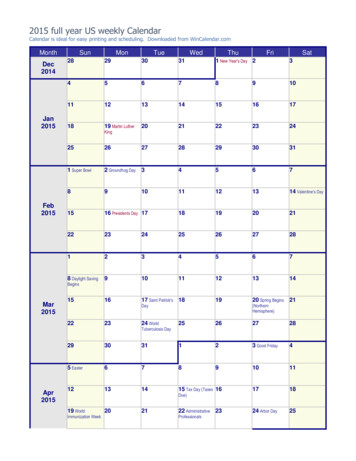
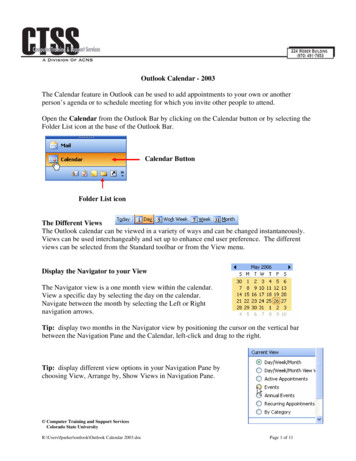
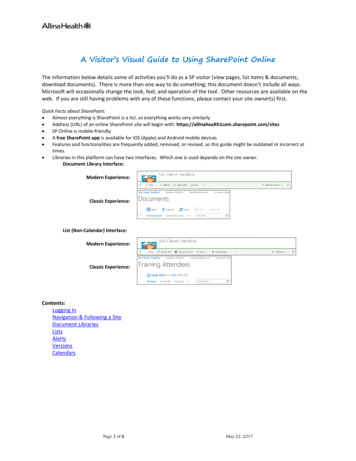
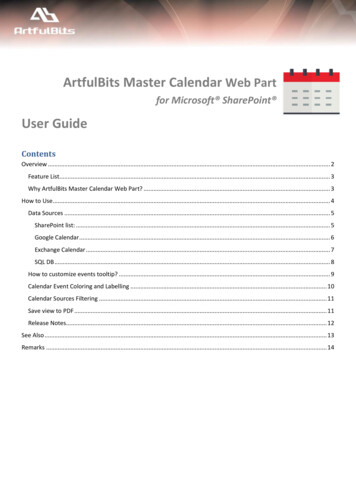

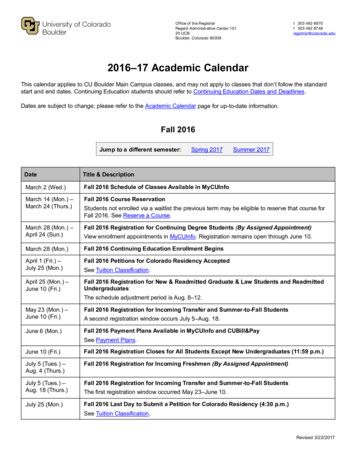
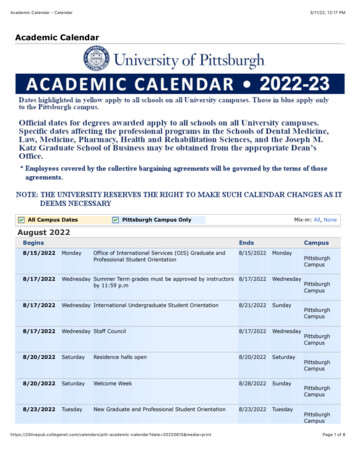
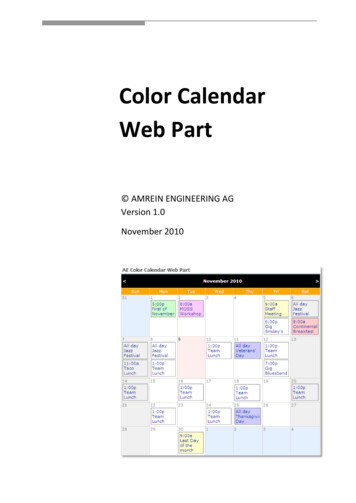

![Change Management Process For [Project Name] - West Virginia](/img/32/change-20management-20process-2003-2022-202012.jpg)

